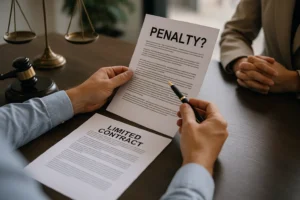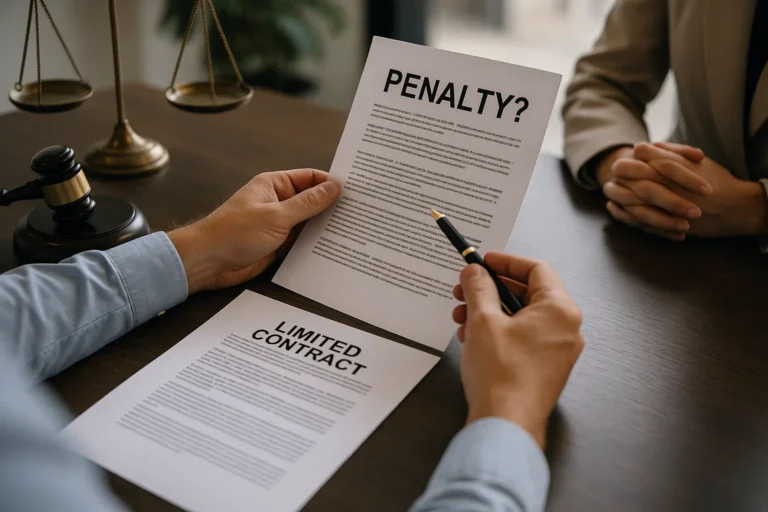If you’re a homeowner or planning to buy your first home, you’ve probably come across the term homestead exemption. At first glance, it sounds like a legal concept that only tax attorneys care about, but in reality, it’s something that can significantly impact your annual property taxes and even offer you a sense of financial security. As someone who’s navigated the maze of property tax documents more than once, I can confidently say: the homestead exemption is something every homeowner should understand.
So, let’s break it down. Simply put, a homestead exemption is a legal provision that helps reduce the amount of property taxes you owe on your primary residence. It works by reducing the taxable value of your home, meaning you’ll pay taxes on a lower amount than what your home is actually worth. For example, if your home is valued at $250,000 and you qualify for a $50,000 homestead exemption, you’ll only be taxed on $200,000 of that value.
This can lead to meaningful savings over time, especially as property values continue to rise in many regions. But the benefits of homestead exemptions go beyond just tax savings—they also offer protection against certain creditors, and in some states, they can shield your home from being forcibly sold in bankruptcy or during a lawsuit. Let’s explore this more deeply.
Understanding the Basics
Most homestead exemptions are granted at the state level, and the rules vary depending on where you live. Some states automatically apply the exemption to eligible homeowners, while others require you to file a one-time or annual application.
Eligibility usually requires that the property be your primary residence. You can’t claim a homestead exemption on a vacation home or a rental property. Other criteria may include age, disability status, veteran status, or income level.
Homestead exemptions can come in a few forms:
- Fixed-dollar exemption: A flat amount subtracted from your home’s assessed value.
- Percentage-based exemption: A percentage of your home’s value is exempted from taxation.
- Combination: Some states use both a fixed amount and a percentage to calculate the benefit.
Real-World Example
Let’s say you live in Florida, which has one of the most well-known homestead exemption programs in the United States. If your home is assessed at $300,000, you could qualify for an exemption of up to $50,000, depending on your situation. That exemption could save you hundreds—even thousands—of dollars each year in property taxes.
Now, imagine using those savings to pay down debt, invest in home improvements, or even build an emergency fund. In my case, I was able to redirect those funds toward paying off my Fab Bank Credit Card, which had accumulated a bit of a balance during a recent move. It felt like getting a financial “breather” just when I needed it most.
The Legal and Financial Safety Net
Beyond tax savings, the homestead exemption also acts as a safeguard. In several states, this exemption protects a portion of your home’s equity from creditors in the event of bankruptcy. This doesn’t mean you’re immune from foreclosure if you default on your mortgage or skip property taxes, but it does offer a buffer against other types of unsecured debt.
Think of it like a financial airbag—something you hope you never need but are grateful to have in place. If you’re taking out large personal loans or dealing with credit card debt, this kind of protection can give you peace of mind.
Speaking of financial planning, many homeowners explore options like an emirates nbd Personal Loan to fund home renovations or consolidate high-interest debt. When used wisely, tools like this can align well with the financial breathing room a homestead exemption provides. For instance, reducing your property taxes through the exemption could help balance the monthly commitment of a personal loan, especially if it’s used to increase your home’s value or efficiency.
How to Apply for a Homestead Exemption
The application process varies, but here’s a general idea of what to expect:
- Visit your local tax assessor’s website. They usually have a section for homestead exemptions.
- Check the eligibility criteria. Make sure you meet all the requirements.
- Complete the application form. You’ll typically need to provide proof of residency like a driver’s license or utility bill.
- Submit by the deadline. Deadlines differ by state and county, so mark your calendar.
In most cases, you only have to apply once—though in some places, you need to reapply annually. I recommend setting a yearly reminder just to be sure. Missing the deadline could mean losing hundreds of dollars in tax savings for the year.
Financial Planning and the Homestead Exemption
One of the smartest moves I made after securing my homestead exemption was reassessing my budget and long-term goals. I took a fresh look at where my money was going and used the extra funds to eliminate smaller debts. That included clearing my Fab Bank Credit Card balance, which was charging high interest and eating into my savings.
This also freed me up to consider other financial tools. For instance, I later took out an emirates nbd Personal Loan to install solar panels on my roof. Thanks to the lower property taxes, my monthly cash flow was better positioned to accommodate the loan payments without stretching my budget too thin. Plus, the energy savings added even more value over time.
It’s all about synergy—aligning the benefits of the homestead exemption with other smart financial tools can create a snowball effect of positive outcomes.
Common Misconceptions
There are a few myths floating around about the homestead exemption. One of the biggest is that it applies automatically in every state. Not true. You must apply in many places, and if you move, you’ll need to reapply for your new residence.
Another common myth is that it eliminates property taxes entirely. Unfortunately, that’s not the case. It reduces your tax bill, but you’ll still owe some amount based on the remaining assessed value.
People also sometimes confuse homestead exemptions with mortgage interest deductions. These are entirely separate tax benefits—one reduces your property taxes, and the other reduces your taxable income if you itemize your deductions.
Final Thoughts
Owning a home is a milestone, but it’s also a financial responsibility. Taking advantage of programs like the homestead exemption can make that responsibility a little lighter. Whether you’re just stepping into the world of real estate or you’ve been a homeowner for years, understanding this exemption is a powerful way to improve your financial standing.
Personally, the exemption gave me not just a financial cushion, but also more confidence in navigating other financial products. By paying off my Fab Bank Credit Card and responsibly managing an emirates nbd Personal Loan, I built a stronger, more resilient financial foundation.
If you’re not sure whether you qualify for a homestead exemption—or how to apply—your local tax office is a great place to start. Don’t leave money on the table. Those savings could be working for you.







